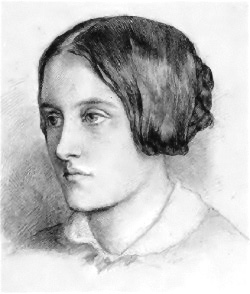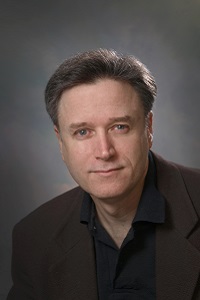Top 498 Counted Quotes & Sayings - Page 9
Explore popular Counted quotes.
Last updated on April 17, 2025.
I have always sought to be understood and, while I was taken to task by critics or colleagues, I thought they were right, assuming I had not been clear enough to be understood. This assumption allowed me to work my whole life without hatred and even without bitterness toward criticism, regardless of its source. I counted solely on the clarity of expression of my work to gain my ends. Hatred, rancor, and the spirit of vengeance are useless baggage to the artist. His road is difficult enough for him to cleanse his soul of everything which could make it more so.
Trust me, I have not earned your dear rebuke, I love, as you would have me, God the most; Would lose not Him, but you, must one be lost, Nor with Lot's wife cast back a faithless look Unready to forego what I forsook; This say I, having counted up the cost, This, tho' I be the feeblest of God's host, The sorriest sheep Christ shepherds with His crook. Yet while I love my God the most, I deem That I can never love you overmuch; I love Him more, so let me love you too; Yea, as I apprehend it, love is such I cannot love you if I love not Him. I cannot love Him if I love not you.
But [Pooh] couldn't sleep. The more he tried to sleep the more he couldn't. He tried counting Sheep, which is sometimes a good way of getting to sleep, and, as that was no good, he tried counting Heffalumps. And that was worse. Because every Heffalump that he counted was making straight for a pot of Pooh's honey, and eating it all. For some minutes he lay there miserably, but when the five hundred and eighty-seventh Heffalump was licking its jaws, and saying to itself, "Very good honey this, I don't know when I've tasted better," Pooh could bear it no longer.
There is no such thing on earth as an uninteresting subject; the only thing that can exist is an uninterested person. Nothing is more keenly required than a defence of bores. When Byron divided humanity into the bores and bored, he omitted to notice that the higher qualities exist entirely in the bores, the lower qualities in the bored, among whom he counted himself. The bore, by his starry enthusiasm, his solemn happiness, may, in some sense, have proved himself poetical. The bored has certainly proved himself prosaic.
When in the wondrous realms above Our Saviour had been called upon, To save our world of sin by love, He said, "Thy will, O Lord, be done.' The Kings of kings left worlds of light, Became the meek and lowly one; In brightest day or darkest night He said, "Thy will, O Lord, be done." No crown of thorns, no cruel cross Could make our great Redeemer shun. He counted his own will but loss, And said, "Thy will, O Lord, be done." We take the bread and cup this day, In memory of the Sinless One, And pray for strength, That we may say, As he, "Thy will, O Lord, be done."
In every way that counted, I was dead. Inside somewhere maybe I was screaming and weeping and howling like an animal, but that was another person deep inside, another person who had no access to the lips and face and mouth and head, so on the surface I just shrugged and smile and kept moving. If I could have physically passed away, just let it all go, like that, without doing anything, stepped out of life as easily as walking through a door I would have done. But I was going to sleep at night and waking in the morning, disappointed to be there and resigned to existence.
Have I then no work to work in this great matter of my pardon? None. What work canst thou work? What work of thine can buy forgiveness or make thee fit for the Divine favour? What work has God bidden thee work in order to obtain salvation? None. His Word is very plain and easy to be understood, "To him that worketh not, but believeth in Him that justifieth the ungodly, his faith is counted for righteousness" (Rom. 4:5). There is but one work by which a man can be saved. That work is not thine, but the work of the Son of God. That work is finished.
Late one afternoon when returning from town we were met by a few women and children who told us that Mexican troops from some other town had attacked our camp, killed all the warriors of the guard, captured all our ponies, secured our arms, destroyed our supplies, and killed many of our women and children.. when all were counted, I found that my aged mother, my young wife, and my three small children were among the slain.
And again it snowed, and again the sun came out. In the mornings on the way to the station Franklin counted the new snowmen that had sprung up mysteriously overnight or the old ones that had been stricken with disease and lay cracked apart-a head here, a broken body and three lumps of coal there-and one day he looked up from a piece of snow-colored rice paper and knew he was done. It was as simple as that: you bent over your work night after night, and one day you were done. Snow still lay in dirty streaks on the ground but clusters of yellow-green flowers hung from the sugar maples.
Obviously, where art has it over life is in the matter of editing. Life can be seen to suffer from a drastic lack of editing. It stops too quick, or else it goes on too long. Worse, its pacing is erratic. Some chapters are little more than a few sentences in length, while others stretch into volumes. Life, for all its raw talent, has little sense of structure. It creates amazing textures, but it can't be counted on for snappy beginnings or good endings either. Indeed, in many cases no ending is provided at all.
We as young men need just one of our peers to stand up and trust his God completely and without reserve. We need just one who will start climbing the rugged mountain cliffs in the direction of his King. We need just one to hear the call of the wild, to charge the fields of Bannockburn and fight for something that really matters. I appeal to you, as a young man, to consider that throughout history, it has often been when one young man stood up to be counted that the course of a nation was forever altered.
A—ris—ta?” Degan asked, sounding horse. “What is it?” “A rat bit me,” she said, once again shocked by her own rasping voice. “Jasper does that if—” Gaunt coughed and hacked. After a moment, he spoke again. “If he thinks you’re dead or too weak to fight.” “Jasper?” “I call him that, but I’ve also named the stones in my cell.” “I only counted mine,” Arista said. “Two hundred and thirty-four,” Degan replied instantly. “I have two hundred and twenty-eight.” “Did you count the cracked ones as two?” “No.
My father took one hundred and thirty-two minutes to die. I counted. It happened on the Jellicoe Road. The prettiest road I’d ever seen, where trees made breezy canopies like a tunnel to Shangri-La. We were going to the ocean, hundreds of miles away, because I wanted to see the ocean and my father said that it was about time the four of us made that journey. I remember asking, 'What’s the difference between a trip and a journey?' and my father said, 'Narnie, my love, when we get there, you’ll understand,' and that was the last thing he ever said.
Philosophy is antipoetic. Philosophize about mankind and you brush aside individual uniqueness, which a poet cannot do without self-damage. Unless, for a start, he has a strong personal rhythm to vary his metrics, he is nothing. Poets mistrust philosophy. They know that once the heads are counted, each owner of a head loses his personal identify and becomes a number in some government scheme: if not as a slave or serf, at least as a party to the device of majority voting, which smothers personal views.
An Individual, whatever species it might be, is nothing in the Universe. A hundred, a thousand individuals are still nothing. The species are the only creatures of Nature, perpetual creatures, as old and as permanent as it. In order to judge it better, we no longer consider the species as a collection or as a series of similar individuals, but as a whole independent of number, independent of time, a whole always living, always the same, a whole which has been counted as one in the works of creation, and which, as a consequence, makes only a unity in Nature.
If a being suffers there can be no moral justification for refusing to take that suffering into consideration. No matter what the nature of the being, the principle of equality requires that its suffering be counted equally with the like suffering - insofar as rough comparisons can be made - of any other being. So the limit of sentience is the only defensible boundary of concern for the interests of others. To mark this boundary by some other characteristic like intelligence or rationality would be to mark it in an arbitrary manner. Why not choose some other characteristic, like skin color?
She had taken to wondering lately, during these swift-counted years, what had been done with all those wasted summer days; how could she have spent them so wantonly? I am foolish, she told herself early every summer, I am very foolish; I am grown up now and know the values of things. Nothing is ever really wasted, she believed sensibly, even one's childhood, and then each year, one summer morning, the warm wind would come down the city street where she walked and she would be touched with the little cold thought: I have let more time go by.
Of course my moods change, but the average is serenity. I have a firm faith in art, a firm confidence in its being a powerful stream which carries a man to a harbor, though he himself must do his bit too; at all events, I think it such a great blessing when a man has found his work that I cannot count myself among the unfortunate. I mean, I may be in certain relatively great difficulties, and there may be gloomy days in my life, but I shouldn't like to be counted among the unfortunate, nor would it be correct if I were.

















